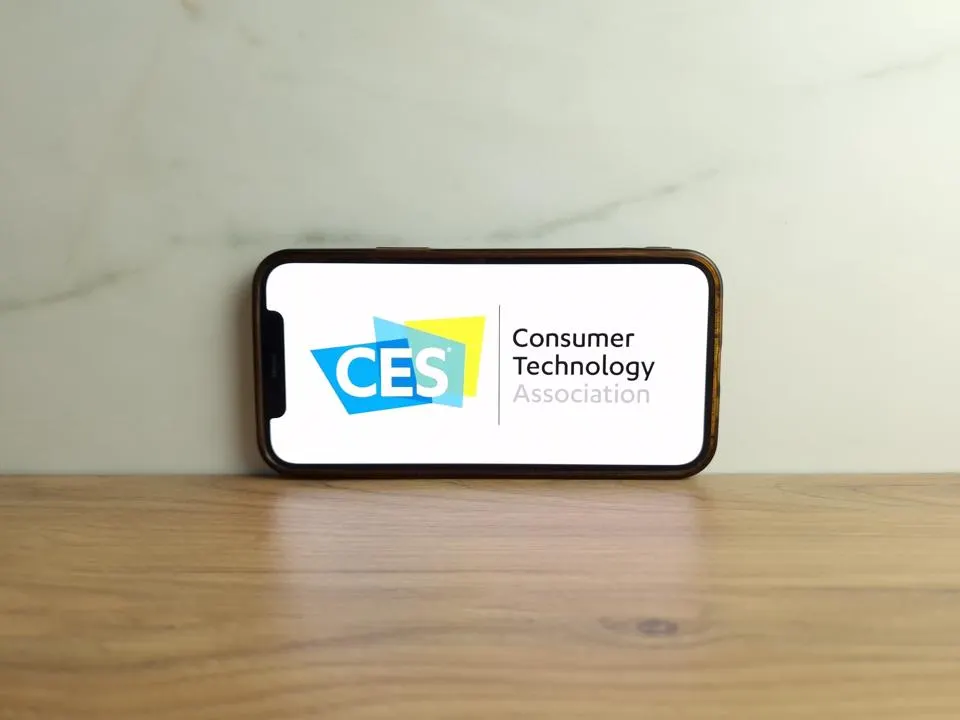30+ Real Examples Of Blockchain Technology In Practice
2 July 2021
While Bitcoin and cryptocurrency may have been the first widely known uses of blockchain technology, today, it’s far from the only one. In fact, blockchain is revolutionizing most every industry. Here are just a few of the practical examples of blockchain technology.

KickCity—Platform for event organizers that enables them to pay only for what they get, and rewards community members by sharing those events. Their products generate around $50k monthly with more than 70k users and 300 event hosts.
B2Expand—Based on the Ethereum blockchain they create cross-gaming video games. Their first video game “Beyond the Void” got into Ubisoft’s startup program and they’re the first gaming company on Steam with a crypto economy.
Spotify—When Spotify acquired blockchain startup Mediachain Labs it was to help develop solutions via a decentralized database to better connect artists and licensing agreements with the tracks on Spotify’s service.
Guts—A transparent ticketing ecosystem that uses blockchain technology to eliminate ticket fraud and the secondary ticket market.
Social Engagement
Matchpool—“Matchmakers” are rewarded for making successful matches whether it’s dating to freelancing to Uber and Airbnb.
Retail
Warranteer—A blockchain application that allows consumers to easily access info regarding the products they purchased and get service in the case of product malfunction.
Blockpoint—Simplifies the creation of payment systems and allows mobile wallet, loyalty program, gift cards and other point-of-sale functionality.
Loyyal—Powered by blockchain and smart contract technology, this loyalty and rewards platform creates more customized programs that even allow for multi-branded rewards.
Exotic Cars
Bitcar—Fractionalized ownership of collector cars made possible by a BitCar token.
Supply chains and logistics
IBM Blockchain—Knowing the status and condition of every product on your supply chain from raw materials to distribution is critical. Blockchain for supply chains allows transparency with a shared record of ownership and location of parts and products in real time.
Food industry—The food industry’s complex network from farmers to grocers makes tracking down food-borne illnesses challenging. Blockchain can improve the transparency and efficiency of finding out what food might be contaminated and where throughout the supply chain.
Provenance—Consumers are increasingly demanding transparency regarding the products they purchase and consume to ensure the sourcing of materials and production of products adheres to their individual values. Provenance uses blockchain to provide chain-of-custody and certification of supply chains.
Blockverify—With a claim to “introduce transparency to supply chains,” Blockverify focuses on anti-counterfeit solutions using blockchain to verify counterfeit products, diverted goods, stolen merchandise and fraudulent transactions.
OriginTrail—Already in use in the food industry, more applications are planned for OriginTrail, a platform that lets consumers know where their purchases came from and how they were produced.
De Beers—De Beers mines, trades and markets more than 30% of the world’s supply of diamonds. The company plans to use a blockchain ledger for tracing diamonds from the mine to the customer purchase. This transparency will help the industry and anybody who wishes to verify, confirm diamonds are free from conflict. Fura Gems also plans to use blockchain in its supply process of emeralds, rubies and other precious stones.
Insurance
Accenture—With goals to boost efficiency and productivity within the insurance industry, Accenture builds blockchain solutions for its insurance clients. They translate key insurance industry processes into blockchain-ready procedures that embed trust into the system.
Proof of insurance—Nationwide insurance company is currently testing a blockchain solution to provide proof-of-insurance information called RiskBlock. Ultimately, when this tool is fully deployed it will help law enforcement, insured and insurers verify insurance coverage in real time and accelerate claims processing.
Healthcare
MedicalChain—The first healthcare company using blockchain technology to facilitate the storage and utilization of electronic health records in order to deliver a complete telemedicine experience. They are real practicing doctors in the UK healthcare structure and want to change the system from within.
MedRec—In order to give any medical provider secure access to patients’ records, MedRec uses blockchain to save time, money and duplication in procedures between a variety of facilities and providers. Patients could also grand access to their anonymous medical records to be used for research.
Nano Vision—Looking to catapult medical innovation away from traditional data silos and incompatible records systems, Nano Vision combines the power of blockchain with artificial intelligence (AI) to gather molecular-level data on Nano Tokens. AI then sifts through the data to find trends and analyze connections that will lead to medical breakthroughs.
Gem—With a goal to give patients control over their medical records and genomic data by using a blockchain solution, Gem has also partnered with Centers for Disease Control and Prevention to experiment with using blockchain to monitor infectious diseases.
SimplyVital Health—This platform sits on blockchain technology that empowers providers and patients to access, share and even move their healthcare data.
Real Estate
BitProperty—Using blockchain and smart contracts, BitProperty wants to democratize opportunity and create a decentralized society by allowing anyone anywhere in the world (except the U.S. and Japan due to regulatory concerns) to invest in real estate.
Deedcoin—Rather than a typical 6% real estate commission, Deedcoin runs on 1% and hopes to be the new way for home buyers and sellers to connect with real estate agents who accept a lower commission.
Ubiquity—This Software-as-a-Service (Saas) blockchain platform offers a simpler user experience to securely record property information to ensure a clean record of ownership.
Charity
BitGive —This gloabal donation platform leverages Bitcoin and blockchain technology to provide greater transparency to donors by sharing real-time financial and project information. Save the Children, The Water Project and Medic Mobile are a few of the charities working with BitGive.
AidCoin—Since research shows 43% of people don’t trust charities, AidCoin hopes to improve that trust with distributed ledgers, smart contracts and cryptocurrencies and make the nonprofit sector more transparent.
Utopi—A lack of transparency has plagued charitable giving, but Utopi hopes to improve transparency in nonprofits. When donors give using the Utopi platform they can see exactly how every penny is spent.
Financial Services
Bitcoin Atom —A new fork of Bitcoin that allows everyone to easily exchange cryptocurrencies without any trading fees and no exchange hacks, making Bitcoin truly decentralized again. The technology is based on atomic swaps—an invaluable tool for exchanging one cryptocurrency with another (e.g. 1000 BTC with 56500 LTC) and no need for a trusted third party. But currently, widespread adoption of atomic swaps has been prevented because they require highly technical skills; something Bitcoin Atom will solve.
Securrency—This is a trading platform for cryptocurrencies and any kind of asset including traditionally illiquid assets to be exchanged through Securrency tokens. This allows cryptos to be traded outside of their dedicated exchanges.
Ripple—Ripple aims to be a global payment solution provider by connecting banks, payment providers, corporations and digital asset exchanges to allow instant, on-demand settlement globally.
ABRA—A global app and cryptocurrency wallet that allows you to buy, invest and store 20 crytopcurriences including Bitcoin, ethereum, litecoin and more.
Aeternity—This highly scalable blockchain platform can be used for any application that requires high transactional speed including smart contracts that are created off chain and nano and micro payments.
Smart Valor—With a mission to make global investments simple, fair and accessible to everyone, Smart Valor democratizes access to global wealth and investment opportunities.
Circle—Send money via text without any fees thanks to this UK-based company.
There are so many blockchain innovations out there that it was a challenge to find what to highlight (check out a previous post of mine for more blockchain examples). Many of these are potentially disruptive and it will be interesting to watch how many of these will survive this initial hype phase. If the initial dot com boom is anything to go by, then there will be many casualties in the short term but serious disruptions in the medium and longer term. An amazing space to watch.
Related Articles
3 Ways Generative AI Is Making Our World A Better Place
Bored of the negative headlines around AI, and specifically generative AI? Then this article is for you.[...]
The Metaverse And Its Dark Side: Confronting The Reality Of Virtual Rape
The police in the UK are currently investigating a virtual rape in the metaverse involving a young girl under the age of 16 who[...]
Generative AI (Probably) Won’t Take Your Job. But It Will Change How You Work
When you read or listen to anything about generative AI and its impact on jobs, it's often a story of job losses.[...]
The Biggest Challenges And Pitfalls Of Data-Driven, AI-Enabled HR
Amid the rapid evolution of digital landscapes, data and AI have emerged as critical tools in human resource (HR) management[...]
The Unmissable Highlights From CES 2024
Much like its predecessors, the Consumer Electronics Show (CES) of 2024 has once again dazzled the world with a spectacle of innovation and technological marvels.[...]
5 Unexpected Ways Generative AI May Change Your Daily Life
No doubt you've seen dozens of headlines (or more) about generative AI and how tools like ChatGPT are going to transform our jobs..[...]
Sign up to Stay in Touch!
Bernard Marr is a world-renowned futurist, influencer and thought leader in the fields of business and technology, with a passion for using technology for the good of humanity.
He is a best-selling author of over 20 books, writes a regular column for Forbes and advises and coaches many of the world’s best-known organisations.
He has a combined following of 4 million people across his social media channels and newsletters and was ranked by LinkedIn as one of the top 5 business influencers in the world.
Bernard’s latest book is ‘Generative AI in Practice’.










Social Media